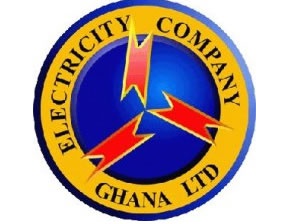The Electricity Company of Ghana (ECG) is bedevilled by a myriad of issues that make it unfeasible for it to issue corporate bonds to raise funds for investment, a source at the utility has told the B&FT.
Below-market tariffs, consumer indebtedness and illegal connections are major problems affecting the electricity distributor.
About one fourth of the population is without access to power, and those that have it contend with intermittent -- and oftentimes unannounced -- power outages every day.
The ECG needs massive investment, and the Securities and Exchange Commission (SEC) has been urging it to consider the option of selling corporate bonds to investors on the capital market.
However, the power distributor says it is currently not in a position to issue bonds. “ECG’s cost of operation outweighs the revenue that it makes. Until such a time where these concerns are addressed and the company is able to at least break-even or make profit, I don’t think the Company will be issuing bonds -- otherwise it will not be able to pay back,” the source said.
Ghana’s power demand is around 1,800 megawatts each year, and is growing at a 10 percent rate per annum. The Greater Accra Region alone requires 450 megawatts per annum -- enough to power the whole of the Upper East and Upper West with surplus.
“The ECG last year petitioned the Public Utilities Regulatory Commission to revise tariffs. But the PURC refused, citing the load-shedding programme. However, they are currently looking at reviewing electricity tariffs,” a source close to the negotiations told the B&FT.
Last year, the government announced GH?179.7million in consumer subsidies for electricity and water, a move that effectively suspended a quarterly rate-adjustment formula that had been introduced in 2011 following pressure from the International Monetary Fund.
ECG continues to grapple with supply problems. On Monday, the company began an “emergency load-shedding programme” due to what it called a “generational shortfall”.
The public’s patience for the inefficiencies of the power utility is running out, and President Mahama has promised to end “load-shedding” by the end of 2013 -- when additional power will be generated from the Bui Dam and other projects to augment the existing level of supply.
There is also rising enthusiasm and interest from investors in renewable energies after Parliament passed a renewable energy law that targets 10 percent of power generation from renewables by 2020.
Business News of Saturday, 26 January 2013
Source: thebftonline
ECG “switches-off” bonds idea













